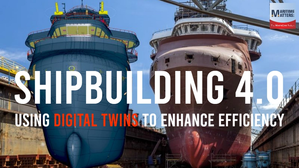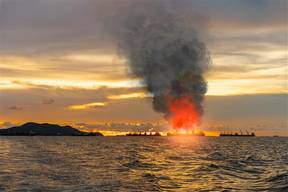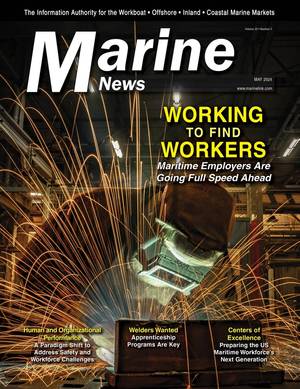Ship Electronics
Electronic devices classed for use in the marine environment. All electronics used onboard must be designed to fit in the small confines of a bridge and can come in contact with salt water, so they are made to be very water resistant or waterproof. A wide variety of marine electronics are available in the marketplace. Some common devices found on modern ships are:
Autopilot and/or self-steering systems
These systems must coordinate data from many devices on the ship and interface with control and propulsion systems to keep the vessel on a predetermined course.
Chartplotter
A chartplotter is a device used in marine navigation to combine GPS data with an electronic navigational chart (ENC) to display the position, heading and speed of a vessel, and may display additional information from radar, automatic information systems (AIS) or other sensors. Electronic chartplotters must be used with one or more computers, and may also display data from other sensors, such as echolocators, radar and/or sonar, or automatic information systems.
Compass
Modern ship compasses use a series of fibre optic gyroscope sensors and computers to locate north. This system usually includes sensors, control and display equipment, and an interface linked with the ship's other navigational devices and global positioning system.
Sonar (or Fishfinder)
Acoustic devices using electronically emitted and detected pulses of sound to locate underwater objects. These include transmitters, receivers, and equipment used to analyze acoustic information.
GPS
Global Positioning Systems are space-based radio-navigation systems that broadcast highly accurate navigation pulses to users on or near the Earth.
Fuel monitoring and management
The rising prices of marine fuel and heightened emissions regulations have led to advances in the technology used to measure, monitor, and report fuel use. Electronic MFM devices can reduce fuel costs and increase operational efficiency.
Marine VHF radio
Marine VHF radio is used by all large ships and most seagoing small craft to summon rescue services and communicate with harbors, locks, bridges and marinas. A marine VHF set combines a transmitter and receiver and only operates on standard, international frequencies specified for marine use.
Radar
Radar is an object detection system that emits electromagnetic waves and analyzes their interaction with objects. Radar systems are able to identify the range, altitude, and velocity of moving and stationary objects such as aircraft, ships, ground vehicles, and meteorological formations.







